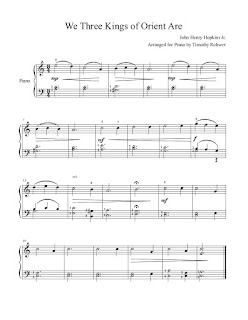Rohwer Skill Acquisition Pyramid
I've been talking to my students for a while about my pyramid of learning skills and wanted to share some of the insights I've gleaned as to how people learn how to do stuff, more particularly as it applies to the arts. These are kind of the rambling thoughts I've had on the subject, and might be a little scattered still a the moment as I am still developing the ideas that are here.
As I got finished teaching a few students one day, I realized that their pattern of learning followed a certain path, and that that same path was the same for me as I was beginning to learn how to play, and it has continued since then down that same path. With these insights, I started to formulate a model for how people not only learn how to play music, but how they learn to a number of different skills. What I came up with was this:
Learning a new skill first involves the basic technique of how to do it. For musicians, this involves the functions of holding an instrument and making sounds on it (or singing in a particular way, etc.). Once these basic skills are learned, they can they be put into use, by actually doing. This is what I refer to as literacy, the ability to take the understanding and actually make sense of the technique and do something with it. I'll mainly refer to music with regard to how we learn a skill, but I feel that these same ideas can be applied to a variety of skills and settings.
These first two levels, technique and literacy, are the most crucial at the beginning stages, as creating a foundation of great technique is always going to allow for greater ability to actual put skills into practice. Likewise, greater 'literacy' will provide a foundation for having greater meaning, or expression in whatever skill is being learned.
What this means is that we are constantly in need of extending our technical abilities. When our technique becomes second nature, we can focus more fully on the actual act of playing music. Our foundation will be in constant need of extension and reinforcement, so that we can build more on it. I like to think of this as an outward and then upward building: we extend first our technique, then we extend our literacy, then we extend our expression.
We reach a certain point in playing where we can actually begin to express ideas, emotions, etc through our skill, be that in music or anything else. A painter can do more than put colors on a page in a pleasing and beautiful fashion, but can actually express something deeper. A singer can add inflections that tug at our hearts and make us feel what they are trying to express.
The goal of all of this is to reach the point where whatever the skill is, it no longer is okay, or even very good, but it is something unique and personal: where whatever we're trying to express comes out as a part of us. This is what concert-goers will come back to a particular musician for again and again: their self is poured out through their art form, and it becomes uniquely them. By this point, everything about their art, the technique, the execution, and the expression, has become so solid, so second nature and without need of thought, that what the individual is trying to express comes out without any effort.
There are varying levels and degrees for this kind of performing: students having taken lessons for many years can play "Mary Had a Little Lamb" skillfully without great difficulty and can pour out whatever emotion they feel with it with ease. However, those same students may not be able to do the same thing with a Beethoven Violin Concerto, or a Bach Partita. Even those who can put great emotion into these may not have the technical skills finely developed enough to play Schoenberg or Webern with that same level of skill. Thus, the constant need for every person wishing to develop their skill - again, be that in music, dancing, or anything else. It is necessary to constantly enhance and extend our technique if we are wishing to grow in our ability to truly express what we wish in our art form.
As I got finished teaching a few students one day, I realized that their pattern of learning followed a certain path, and that that same path was the same for me as I was beginning to learn how to play, and it has continued since then down that same path. With these insights, I started to formulate a model for how people not only learn how to play music, but how they learn to a number of different skills. What I came up with was this:



Comments
Post a Comment